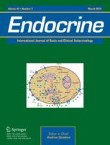
Medicine by Alexandros G. Sfakianakis,Anapafseos 5 Agios Nikolaos 72100 Crete Greece,00302841026182,00306932607174,alsfakia@gmail.com,
Πληροφορίες
Ετικέτες
Τρίτη 14 Απριλίου 2020
Association between thyroid function and serum cortisol in cortisol-producing adenoma patients
Association between thyroid function and serum cortisol in cortisol-producing adenoma patients:


Αναρτήθηκε από
Medicine by Alexandros G. Sfakianakis,Anapafseos 5 Agios Nikolaos 72100 Crete Greece,00302841026182,00306932607174,alsfakia@gmail.com,
στις
10:42 μ.μ.

Ετικέτες
00302841026182,
00306932607174,
alsfakia@gmail.com,
Anapafseos 5 Agios Nikolaos 72100 Crete Greece,
Medicine by Alexandros G. Sfakianakis,
Telephone consultation 11855 int 1193
Εγγραφή σε:
Σχόλια ανάρτησης (Atom)
Αρχειοθήκη ιστολογίου
-
►
2023
(276)
- ► Φεβρουαρίου (133)
- ► Ιανουαρίου (143)
-
►
2022
(1976)
- ► Δεκεμβρίου (116)
- ► Σεπτεμβρίου (158)
- ► Φεβρουαρίου (165)
- ► Ιανουαρίου (161)
-
►
2021
(3661)
- ► Δεκεμβρίου (161)
- ► Σεπτεμβρίου (274)
- ► Φεβρουαρίου (64)
- ► Ιανουαρίου (368)
-
▼
2020
(4554)
- ► Δεκεμβρίου (400)
- ► Σεπτεμβρίου (381)
-
▼
Απριλίου
(613)
- Medicine by Alexandros G. Sfakianakis,
- Medicine by Alexandros G. Sfakianakis,
- Medicine by Alexandros G. Sfakianakis,
- Medicine by Alexandros G. Sfakianakis
- Medicine by Alexandros G. Sfakianakis
- Medicine by Alexandros G. Sfakianakis
- M
- M
- Association between polycystic ovary syndrome and ...
- Airborne transmission of severe acute respiratory ...
- M
- Indigenous Management of Parotid Sialocele Using F...
- Synovial Chondromatosis of the Temporomandibular J...
- Prediction mode of more than 5 central lymph nodes...
- Case report of a cystic parathyroidal adenoma with...
- M
- CD44v3 protein-carrying tumor-derived exosomes in ...
- Squamous Cell and Adenoid Cystic Carcinoma Collisi...
- Cat-scratch Disease with Parinaud's Oculoglandular...
- Necrotizing Fasciitis due to Candida Infection aft...
- Ewing Sarcoma of Larynx: A Rare Case in a 5-Year-O...
- Eccrine porocarcinoma of the head and neck: Meta-a...
- Incidence and survival trends of parotid malignanc...
- M
- Usefulness of intraoperative determination of cent...
- M
- M
- The 24-inch gauge and the common gavel: an entered...
- Pediatric Patients with Previous Anaphylactic Reac...
- Targeting tumor-associated macrophages in head and...
- Vitamin D Status as a Predictor of Postoperative H...
- Anesthesia for TORS for Oropharyngeal Carcinoma: F...
- M
- Event-Related Potential Evidence of Enhanced Visua...
- M
- Evidence of Failure of Oral Third-Generation Cepha...
- Moderate to severe hyperphosphataemia as an indepe...
- Morphological study of the rabbit gustatory lingua...
- Advances and perspectives of dendritic cell-based ...
- Massive pulmonary embolism in pregnancy: intra-arr...
- Supraclavicular left neck mass: an unusual present...
- Malignant peripheral nerve sheath tumour of thyroi...
- M
- Bilateral Fan-Shaped Septal Extension Struts in Au...
- M
- M
- Correlation of p53 expression with Clinical Presen...
- The current modified technique of uvulopalatophary...
- Implantable Neurostimulation for Treatment of Slee...
- M
- Sonographic exploration for fascial exploration (S...
- M
- M
- M
- An impact of microscopic positive margin on incomp...
- M
- M
- The Postoperative Lymphocyte to Monocyte Ratio Cha...
- M
- Giant Thrombosis at Left Anterior Descending Arter...
- M
- Medicine by Alexandros G. Sfakianakis,
- Medicine
- Medicine by Alexandros G. Sfakianakis,Anapafseos 5...
- Medicine by Alexandros G. Sfakianakis,Anapafseos 5...
- Medicine
- COVID‐19 indirect contact transmission through the...
- Value of colchicine as treatment for recurrent ora...
- Cancer Medicine
- Allergy & Rhinology
- Dermatology
- Oral and Maxillofacial Surgery
- Exploding head syndrome, chronotype, parasomnias a...
- Modulation of Airway Epithelial Innate Immunity an...
- Bone Marrow Langerhans Cell Histiocytosis in Assoc...
- Sleep
- The rs11187533 C>T Variant of the FFAR4 Gene Is As...
- Integrative Medicine
- Angiolymphoid hyperplasia with eosinophilia of the...
- Microcystic Adnexal Carcinoma of the Face Treated ...
- Verrucous hyperplasia and verrucous carcinoma in h...
- An Unusual Case of Noisy Breathing in an Infant.
- The role of polysomnography in decannulation of ch...
- Periodontitis is associated with incident chronic ...
- head and neck
- Bloody Diarrhea in a 17-year-old Male......infecti...
- philosophy for medicine
- Preoperative Factors Associated with Extrathyroida...
- Traditional Chinese Medicine
- Vaccination of Mice with isteria ivanovii Expressi...
- Management of epistaxis in patients on novel oral ...
- BRC
- oral oncology
- Antibiotics
- The Utility of Genetic Testing for Familial Hyperc...
- 310 nm UV-LED Attenuates Imiquimod-Induced Psorias...
- Cancer Research
- Nonsurgical Treatments for Extramammary Paget Dise...
- 20 σπάνια γυναίκεια ονόματα και η σημασία τους
- Der Chirurg
- ► Φεβρουαρίου (638)
- ► Ιανουαρίου (691)

Δεν υπάρχουν σχόλια:
Δημοσίευση σχολίου